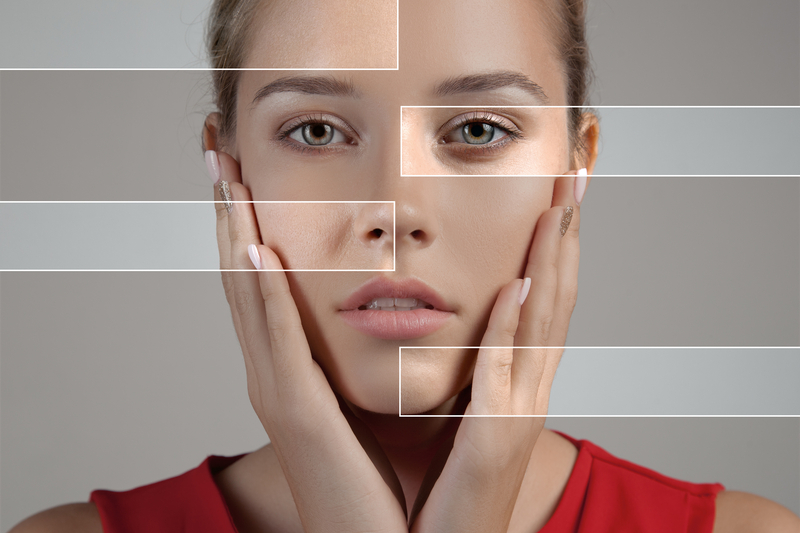Ingredients to Avoid: Beware the Hidden Culprits That Could Be Harming Your Skin
In the pursuit of healthy skin, it’s crucial to understand the impact of skincare ingredients. While some ingredients offer remarkable benefits, others can be detrimental to your skin’s health. This comprehensive guide reveals hidden culprits that may harm your skin, shedding light on lesser-known ingredients. By uncovering these harmful substances and making informed choices, you can protect your skin and embrace a truly nurturing skincare routine.
Unveiling Harmful Skincare Ingredients:
- Parabens: Widely used as preservatives in skincare products, parabens (such as methylparaben and propylparaben) have been associated with potential hormone disruption and skin irritation. Opt for paraben-free alternatives to reduce potential risks.
- Sulfates: Commonly found in cleansers and shampoos, sulfates like sodium lauryl sulfate (SLS) and sodium laureth sulfate (SLES) create lathering foam. However, they can strip the skin of natural oils, leading to dryness and irritation. Choose sulfate-free products for a gentler cleansing experience.
- Synthetic Fragrances: Synthetic fragrances in skincare products often contain a blend of chemicals that can trigger allergic reactions and sensitivities. Look for fragrance-free products or those scented with natural essential oils.
- Formaldehyde Releasers: Formaldehyde and formaldehyde-releasing preservatives (such as DMDM hydantoin and imidazolidinyl urea) are used to inhibit microbial growth. However, these ingredients can cause skin irritation and have potential long-term health concerns. Seek formaldehyde-free alternatives.
- Mineral Oil: Derived from petroleum, mineral oil is a common ingredient in moisturizers and balms. While it acts as an occlusive barrier to lock in moisture, it can clog pores and potentially contribute to breakouts. Consider plant-based oils like jojoba or argan oil as alternatives.
- Synthetic Colorants: Artificial colorants, identified as FD&C or D&C followed by a number, are used to enhance the visual appeal of skincare products. However, they can trigger allergic reactions or sensitivities, especially in individuals with sensitive skin. Opt for products without synthetic colorants.
- Silicones: Silicones like dimethicone and cyclopentasiloxane are widely used in skincare and makeup products for their smooth, velvety texture. While they provide temporary benefits, they can create a barrier that traps debris and blocks the pores, potentially leading to congestion and breakouts. Consider silicone-free alternatives.
Revealing Lesser-Known Insights:
- Microbeads: Microbeads are tiny plastic particles used in some exfoliating products. These non-biodegradable particles can accumulate in water systems, posing risks to marine life and ecosystems. Look for environmentally-friendly physical exfoliants like natural scrubs or gentle brushes.
- Polyethylene Glycol (PEG): PEG is a common ingredient found in cleansers, moisturizers, and serums. While it aids in product consistency, it can potentially cause skin irritation and allergic reactions. If you experience sensitivity, avoid products containing PEG.
- Phthalates: Phthalates, often hidden under the term “fragrance” or “parfum,” are chemicals used to stabilize scents in skincare and cosmetic products. They have been associated with hormonal disruption and adverse effects on reproductive health. Opt for phthalate-free products or those scented with natural fragrances.
- Oxybenzone: Oxybenzone is a chemical sunscreen ingredient that absorbs UV rays. However, research suggests that it may be linked to hormone disruption and skin allergies. Consider using mineral-based sunscreens with ingredients like zinc oxide or titanium dioxide as alternatives.
Making Informed Skincare Choices:
- Educate Yourself: Familiarize yourself with harmful ingredients and read product labels carefully. Look for resources that provide comprehensive information on skincare ingredients and their potential effects.
- Research Trusted Brands: Seek out skincare brands committed to transparency and safety. Look for certifications or endorsements from reputable organizations that prioritize clean and effective formulations.
- Patch Testing: Before introducing new products into your routine, perform patch tests on a small area of skin to check for any adverse reactions or sensitivities.
- Consult a Skincare Professional: If you have specific skin concerns or sensitivities, consult a dermatologist or skincare professional for personalized advice and recommendations.
Protecting your skin starts with understanding the harmful ingredients that may lurk in skincare products. By avoiding harmful substances like parabens, sulfates, synthetic fragrances, and others mentioned above, you can minimize the risk of skin irritation, sensitivities, and potential long-term health concerns. Empower yourself with knowledge, read product labels diligently, and make informed choices to nurture your skin with safe and beneficial ingredients. Remember, your skin deserves the best care possible.



